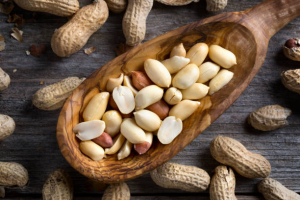Top 5 Health Benefits of Farro
Farro is a millennium-old grain that has been around for thousands of years. It has lately gained popularity. Not only does it taste great — it’s also good for ... read more...your health. It is high in fiber, protein, vitamins, minerals, and antioxidants. Farro is also an excellent alternative to processed grains and is simple to incorporate into your diet. And here are the best health benefits of farro.
-
Farro is a highly nutritious grain. It's high in protein, fiber, and minerals including magnesium, zinc, and B vitamins. It's a far healthier option than white rice or other processed grains. One-fourth cup (47 grams) of organic whole grain emmer farro has the following nutrients:
- Calories: 170
- Carbs: 34 grams
- Fat: 1 gram
- Fiber: 5 grams
- Protein: 6 grams
- Vitamin B3 (niacin): 20% of the RDI
- Magnesium: 15% of the RDI
- Zinc: 15% of the RDI
- Iron: 4% of the RDI
Farro is a good source of zinc, magnesium, and vitamin B3 (niacin), all of which are crucial nutrients for your body. Zinc is required for a healthy immune system, wound healing, and glucose breakdown during digestion. Magnesium is required for strong bones, optimal immunity, good neuron and muscle function, and a regular heartbeat. It also aids in the regulation of blood glucose levels and has been related to enhanced insulin sensitivity. Vitamin B3 (niacin), like the other B vitamins, aids in the breakdown and conversion of food into energy. It also helps to keep your hair, skin, and eyes healthy, among other things.
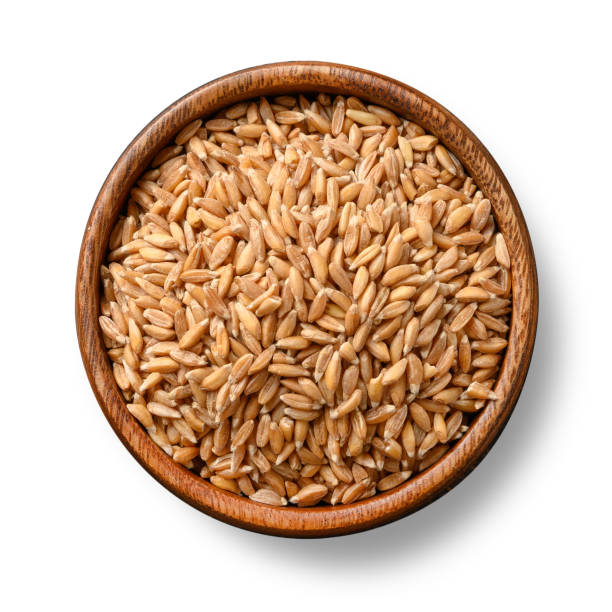
Very Nutritious 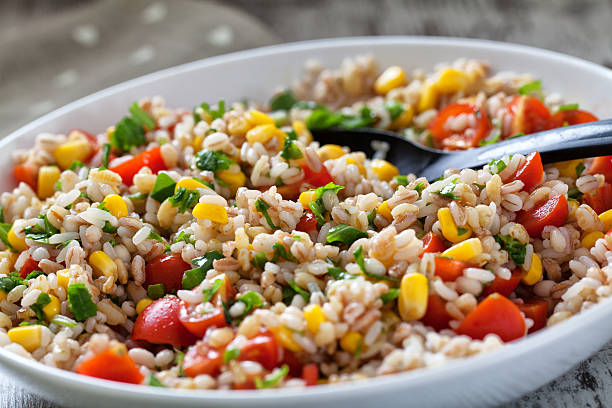
Very Nutritious -
Fiber is typically lacking in modern diets. One cup of whole grain emmer farro has 20% of the daily required fiber intake. This is comparable to quinoa but higher than several other popular grains, including brown rice, pasta, and couscous.
The health benefits of a high-fiber diet should not be overlooked. They include a reduced risk of type 2 diabetes and heart disease. Fiber has also been found to help avoid blood sugar rises and reduce total and LDL cholesterol. Furthermore, fiber can benefit gut health in a variety of ways. To begin, certain fibers can improve gut health by feeding friendly microorganisms in the stomach. Second, by adding weight to your stools, fiber may help prevent or alleviate constipation.
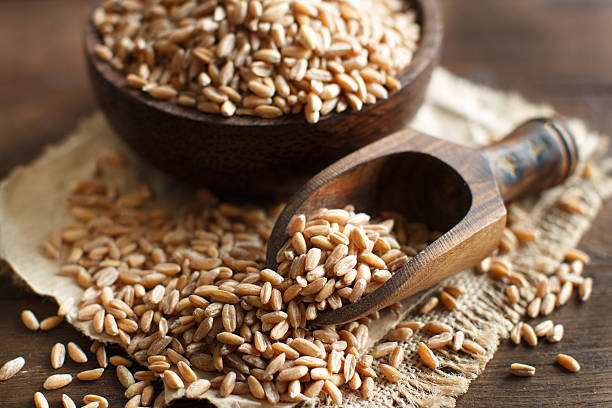
Contains More Fiber Than Most Popular Grains 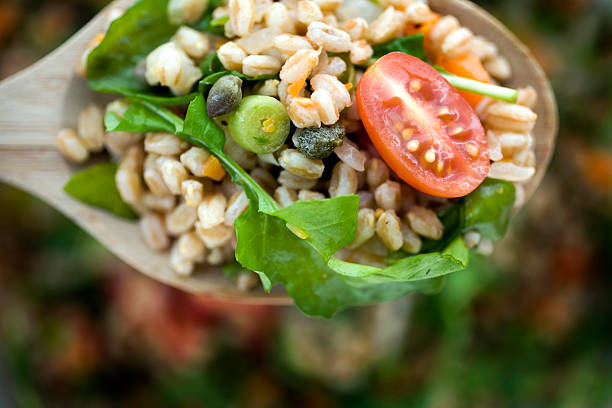
Contains More Fiber Than Most Popular Grains -
Whole grains are linked to better health because they include a variety of antioxidant components, including polyphenols, carotenoids, phytosterols, and selenium. Furthermore, whole grains, together with fruits and vegetables, are key antioxidant sources in the diet. Polyphenols, carotenoids, and selenium are abundant in all three grains related to farro (emmer, einkorn, and spelled). Long-term intake of plant polyphenol-rich diets may protect against illnesses such as certain cancers, heart disease, diabetes, osteoporosis, and neurological disorders, according to observational studies.
A meta-analysis of 16 research found that eating three servings of whole grains per day lowered the incidence of diabetes by 32%. Another major evaluation of 45 research found that eating three servings of whole grains per day lowered the risk of heart disease and stroke by 22% and 12%, respectively.
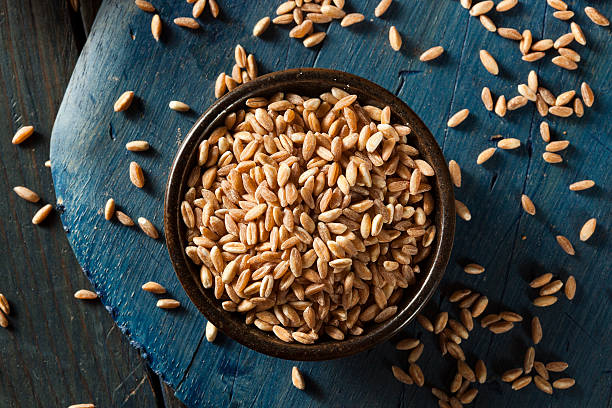
Contains a Wide Range of Healthy Antioxidants 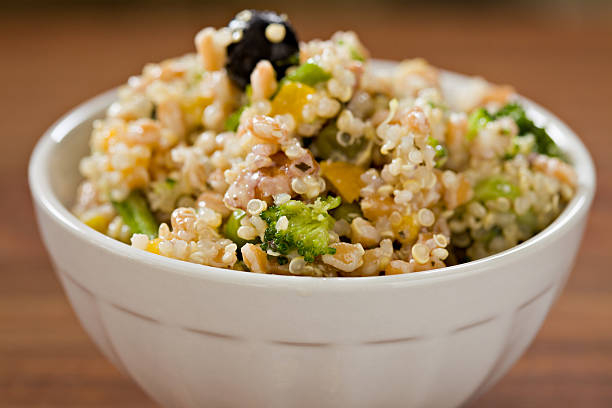
Contains a Wide Range of Healthy Antioxidants -
Farro has a high protein content for grain. Six grams of protein are found in one-fourth cup (47 grams) of whole grain emmer farro. This is comparable to quinoa but higher than brown rice and whole wheat. Farro provides a complete protein supply when paired with other plant-based meals such as beans. This signifies that it has an acceptable amount of the necessary amino acids required for human health. This is great news for vegetarians and anybody searching for plant-based, high-protein foods.
Furthermore, consuming extra protein might improve your health and waistline. High-protein diets have been demonstrated in studies to keep you satiated for longer. This is due in part to the fact that protein increases fullness hormones while decreasing hunger hormones. In a 12-week trial, 19 overweight women who ate a higher-protein diet ate up to 440 fewer calories per day and lost up to 10.8 pounds (4.9 kg). Getting adequate protein is also important for increasing muscle mass. Finally, consuming extra protein may be beneficial to heart health. This is mostly due to the fact that a higher-protein diet has been demonstrated to lower blood pressure and LDL cholesterol, two key risk factors for heart disease.
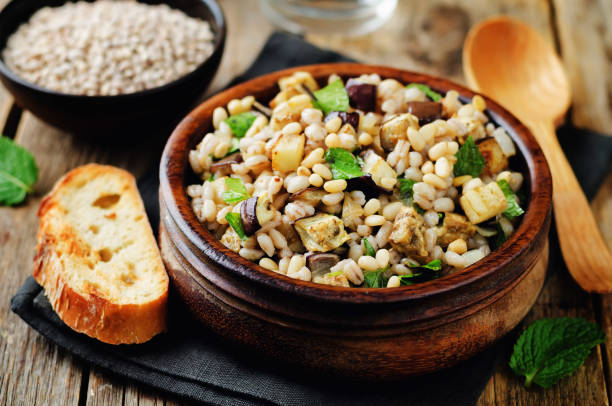
Great Source of Protein 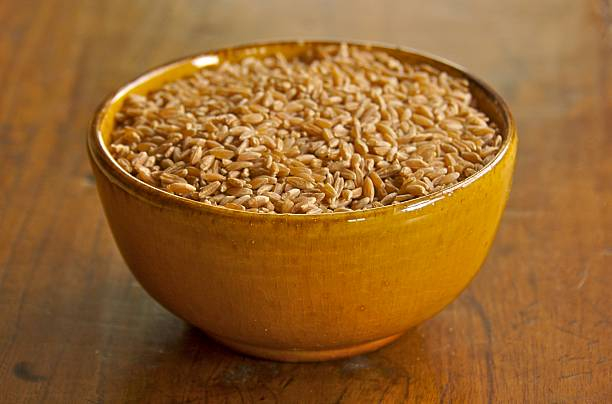
Great Source of Protein -
Although no research on the impact of farro on body weight has been conducted, it does contain a variety of qualities that may aid in weight loss. Farro is a far better replacement for other refined grains if you're attempting to reduce weight. To begin, a 47-gram serving has only 170 calories. Furthermore, because it is strong in protein and fiber, it may help suppress your appetite and keep you satisfied for longer.
It also has a low glycemic index, which means it digests slowly, resulting in a slower rise in blood sugar and consistent energy delivery throughout the day. This helps to reduce rapid blood sugar drops and may help to prevent cravings caused by unstable blood sugar. In fact, a meta-analysis of 15 research found that eating three servings of whole grains per day was related to a reduced BMI and body fat.
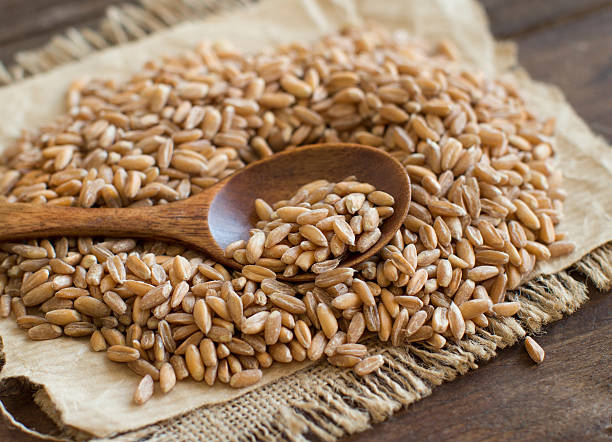
Weight Loss Friendly Food 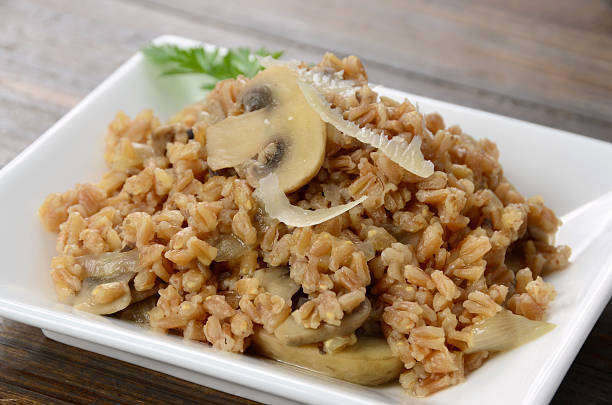
Weight Loss Friendly Food







